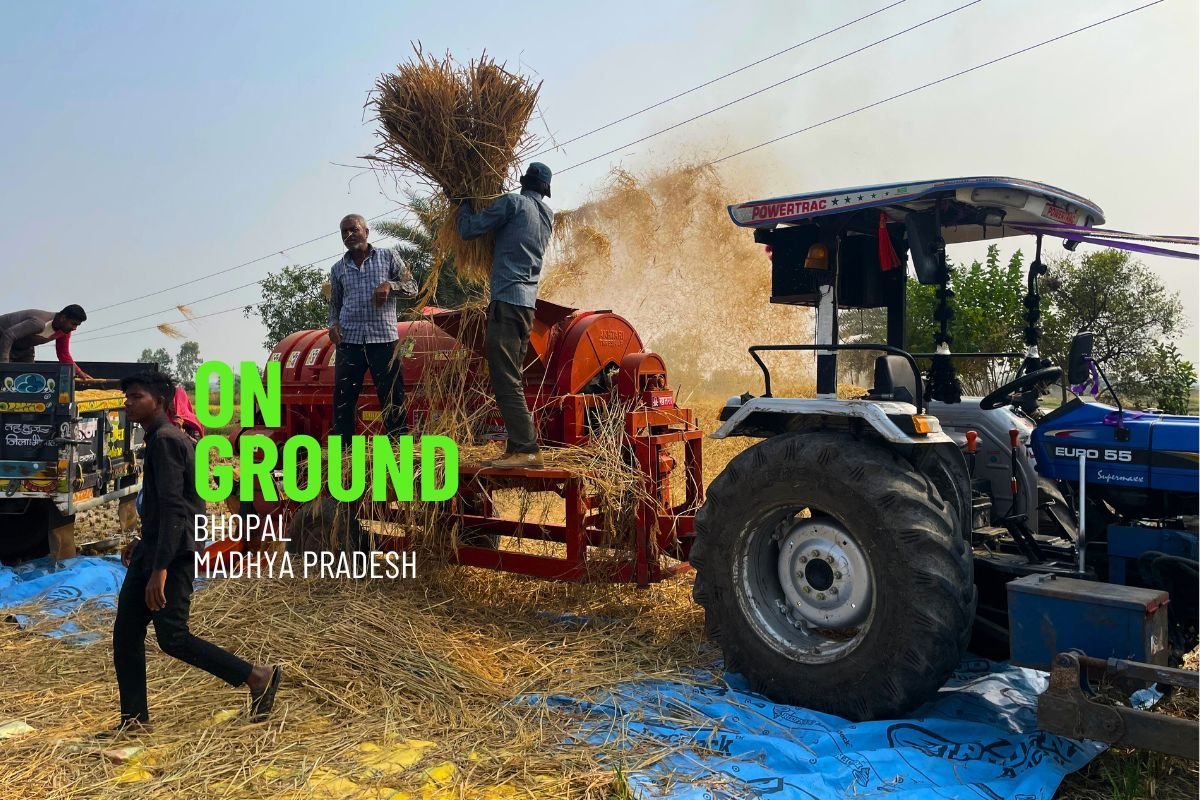Paddy cultivation has started in more than 40 lakh hectares of area in Madhya Pradesh. Vidisha, Raisen, Sehore, Narmadapuram, Harda, Jabalpur, Narsinghpur, Morena, Bhind, Gwalior, Sheopur, Datia, Shivpuri and Guna districts of the state are known for paddy cultivation. The land of the Phanda block of the Bhopal district is also suitable for paddy cultivation due to its proximity to Bhoj Wetland. Paddy is cultivated here in 5750 hectares of area. We went to Khajuri Sadak village of Phanda block and talked to the farmers who were harvesting paddy.
Khajuri Sadak farmer Jitendra Patel had planted a Pusa variety of Basmati in his field this time; this time he got a yield of 15 quintals per acre. Due to good rains, paddy yield is good but the prices in the market are very low. Jitendra says
“Last year at this time the price of Basmati rice was 4 thousand rupees per quintal, but this time it is on average 2800 rupees per quintal. It is difficult to recover the cost of the crop at such a low price.”
The former Sarpanch of the village, Chhatar Singh Mewada, also supports Jitendra and says that
“The government has fixed the MSP of A grade quality rice at Rs 2320, due to which the farmers get less price for Basmati. Whereas the government does not buy Basmati rice at all. Traders are taking advantage of this. When consumers buy Basmati rice in retail in the market, they get it for 80 rupees per kg, but the farmer is being given only 23 rupees. The government should fix MSP according to different varieties of rice.”
The price of Basmati rice is lower in Madhya Pradesh compared to other states. One reason for this is that Basmati here has not got a GI tag. The government of Madhya Pradesh has been continuously demanding a GI tag for Basmati of MP. However, the Agricultural and Processed Food Products Export Development Authority has been opposing this demand. APEDA says that
“Glacial rivers in the Gangetic plains make the Basmati here unique, which is not present in Madhya Pradesh. Basmati cultivation in MP started only two decades ago. If MP’s Basmati gets the GI tag, it can have a detrimental effect on the reputation of India’s Basmati on the global stage.”
Jitendra says that the input cost of paddy crops has increased in the last few years, but the prices are not increasing accordingly. Along with this, farmers of Bhopal have to go to Raisen or Obedullaganj to sell their produce, which is 56 kilometres away from Khajuri Sadak village, which costs them an additional Rs 8000.
For the last few years, the soybean crop has been damaged in Madhya Pradesh due to extreme weather events like excessive rain and increases in temperature. In such a situation, farmers are turning to paddy cultivation. If we look at the data of the last four years obtained from the Economic Survey of Madhya Pradesh, the area under paddy cultivation in the state seems to be increasing while the area under soybean cultivation seems to be decreasing.
Support us to keep independent environmental journalism alive in India.
Follow Ground Report on X, Instagram and Facebook for environmental and underreported stories from the margins. Give us feedback on our email id greport2018@gmail.com.
Don’t forget to Subscribe to our weekly newsletter, Join our community on WhatsApp, Follow our Youtube Channel for video stories.
More Videos
Soybean Crisis: MP Farmers Stay Away from MSP | Here’s Why
Farmers’ protest against Gail India’s ethane cracker plant in Sehore







